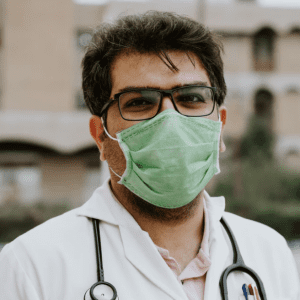News You Can Use: Some Recent COVID-19 Updates

News You Can Use: Some Recent COVID-19 Updates
November 4, 2020
As we enter our 9th month of the coronavirus pandemic, it’s important to take stock of what we’ve learned and to keep track of new information as it arises. You can find every agebuzz post touching on some aspect of the coronavirus pandemic here and you can rest assured that we will continue to present scientifically-based info and insights on all aspects of the virus, vaccines, and where we are heading as a country. For now, it’s useful to put some numbers in perspective and update you on some of the current issues we face as we enter the winter months.
Numbers first: We continue to break new records every day concerning new infections as well as an ever-rising number of fatalities. Statistics show that 80% of all COVID deaths are among those 65-years-old and older. In fact, deaths in that age group are 90X higher than deaths among those ages 18-49. So, if you are 65 or older, or have significant underlying health problems, you continue to face a heightened risk of being infected, and facing more severe illness, from the coronavirus. Researchers at Kings College in London also now report that women between the ages of 50-60 are at the greatest risk of suffering “long COVID,” i.e, symptoms lasting more than one month. More generally, older age appears to be a predictor of longer-lasting symptoms, with 22% of those over 70 suffering from COVID for at least 4 weeks, while only 10% of those ages 18-49 suffer for that long.
Regarding the emotional impact of COVID on older populations, the news continues to be mixed. While a recently published study from Stanford University reports that older adults appear to be experiencing better emotional health during the pandemic than younger adults, this study surveyed participants back in April, at the beginning of the pandemic. A more recent survey of older adults from August, however, reports that one in four older adults reports anxiety or depression during the pandemic.
We know from previous agebuzz posts that older adults have suffered not only from the virus itself but many have also deeply suffered from the isolation and loneliness that have accompanied the necessary public health limitations of social distancing and quarantining. So what is to become of older adults as we head into the winter months that even in ordinary times can cause a cutback in social engagements? Judith Graham from Kaiser Health News recently reported on seniors who have decided to form their own COVID “pods” or “bubbles”, which are small groups of like-minded individuals who socialize together while otherwise observing strict public health precautions in all other aspects of their lives. Graham recommends that if you are “podding,” you may want to reach out to “solo” seniors who are alone yet who may desire to join a pod as well. If you’re not willing to take such a risk, however, know that you are in good company, as it appears that older adults as a whole are better at following CDC pandemic safety recommendations than younger adults. And while few of us may be heading back to stores or shopping malls (Marketplace.org reports that Baby Boomers are more pessimistic than younger consumers and are leery about going out and spending money) some of us may consider testing the waters for outdoor dining, especially now that many restaurants have invested in portable outdoor heaters and plastic bubbles to surround outdoor diners. But is that safe? According to the Washington Post, the virus could still be transmitted in such plastic pods unless you continue to take necessary precautions such as sufficient air ventilation, mask-wearing when not eating, and strict cleaning between dining patrons.
One last note: When a vaccine eventually arrives for distribution (even Anthony Fauci’s not exactly sure when that will be), Medicare and Medicaid have vowed to completely cover the costs of the vaccine, with no costs to the consumer, even if the vaccine is released under the FDA’s emergency authorization authority. And that’s about as good as the news gets right now.







